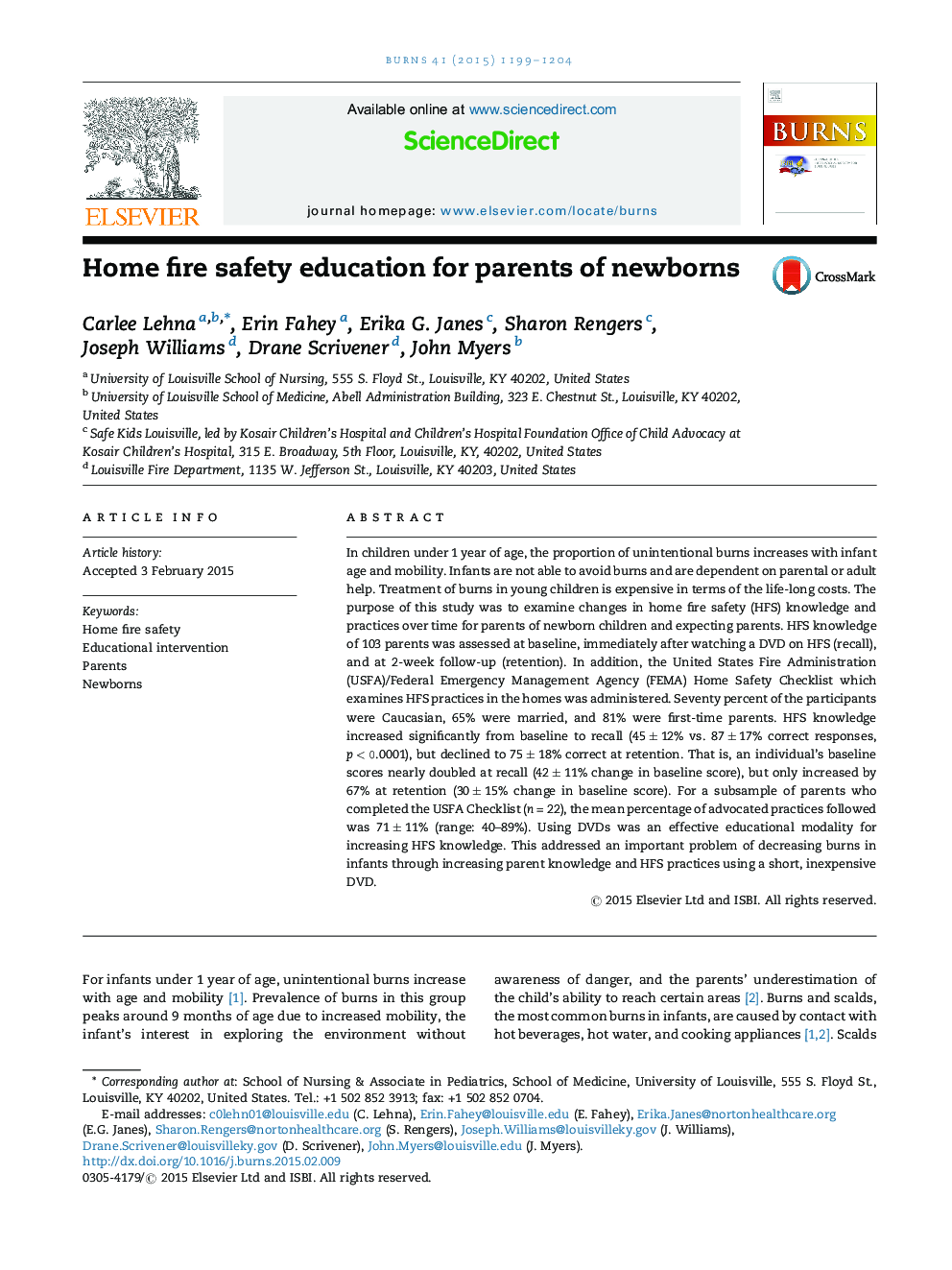| Article ID | Journal | Published Year | Pages | File Type |
|---|---|---|---|---|
| 6048513 | Burns | 2015 | 6 Pages |
Abstract
In children under 1 year of age, the proportion of unintentional burns increases with infant age and mobility. Infants are not able to avoid burns and are dependent on parental or adult help. Treatment of burns in young children is expensive in terms of the life-long costs. The purpose of this study was to examine changes in home fire safety (HFS) knowledge and practices over time for parents of newborn children and expecting parents. HFS knowledge of 103 parents was assessed at baseline, immediately after watching a DVD on HFS (recall), and at 2-week follow-up (retention). In addition, the United States Fire Administration (USFA)/Federal Emergency Management Agency (FEMA) Home Safety Checklist which examines HFS practices in the homes was administered. Seventy percent of the participants were Caucasian, 65% were married, and 81% were first-time parents. HFS knowledge increased significantly from baseline to recall (45 ± 12% vs. 87 ± 17% correct responses, p < 0.0001), but declined to 75 ± 18% correct at retention. That is, an individual's baseline scores nearly doubled at recall (42 ± 11% change in baseline score), but only increased by 67% at retention (30 ± 15% change in baseline score). For a subsample of parents who completed the USFA Checklist (n = 22), the mean percentage of advocated practices followed was 71 ± 11% (range: 40-89%). Using DVDs was an effective educational modality for increasing HFS knowledge. This addressed an important problem of decreasing burns in infants through increasing parent knowledge and HFS practices using a short, inexpensive DVD.
Related Topics
Health Sciences
Medicine and Dentistry
Critical Care and Intensive Care Medicine
Authors
Carlee Lehna, Erin Fahey, Erika G. Janes, Sharon Rengers, Joseph Williams, Drane Scrivener, John Myers,
